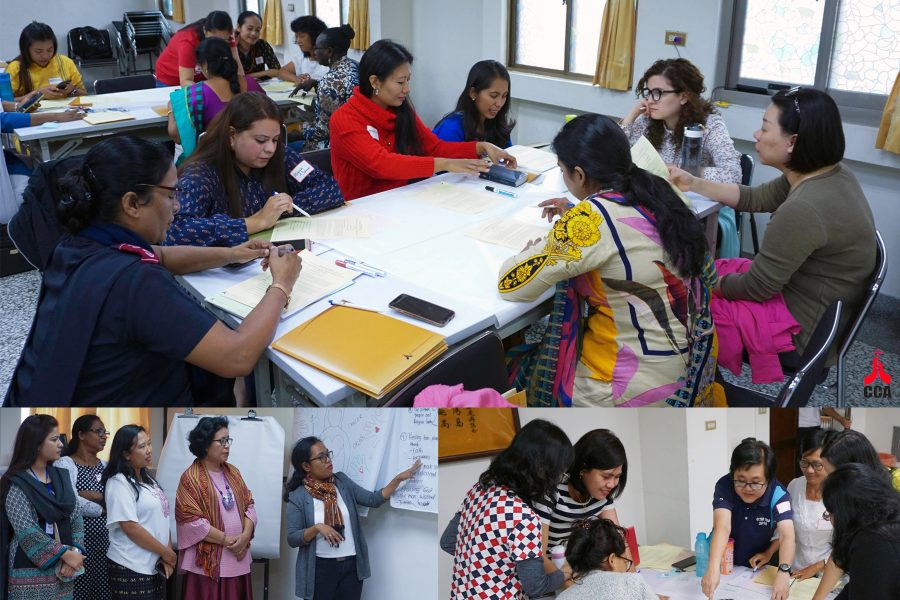Asian Ecumenical Women’s Assembly (AEWA) pre-event focuses on action plans for HIV and AIDS advocacy across Asia

HSINCHU, Taiwan: Forty women representatives from churches, national and regional ecumenical councils, and related organizations who are meeting at the Presbyterian Bible College in Hsinchu city in Taiwan are working on an effective action plan for advocacy to combat the spread of HIV and AIDS in Asia.
The three-day workshop on ‘Asian Ecumenical Women Responding and Strengthening HIV & AIDS Advocacy’ is being held from 19 to 21 November 2019 in conjunction with the Asian Ecumenical Women’s Assembly (AEWA) which is set to commence on 22 November 2019.
Prof Nai-Ying Ko from National Cheng Kung University gave a comprehensive presentation on the HIV and AIDS situation in Taiwan and emphasized on “U=U” or “Undetected equals Untransmittable”. Prof Ko’s presentation specifically emphasised the role of churches in effectively responding to the HIV epidemic via “ABCD” which stands for A – Awareness, B – Breaking Stigma, C – Community and Care, D – drugs like Pre-Exposure Prophylaxis (PrEP), Anti-Retroviral Therapy (ART) and Post-Exposure Prophylaxis (PEP).
Presenting on the ‘Best Practices in Responding to HIV and AIDS’, the Executive Director of Taiwan Lourdes Association, Dr Paul Hsu shared with the participants a HIV Community Care Model that could be replicated in other Asian communities.
Dr Paul Hsu shared strategies such as Risk Behaviour Redefinition, Universal Precaution, and Gender/Sex Equality to improve the quality of life of People Living with HIV.
A PLHIV who shared her experiences with the participants said, “My faith community and family supported and encouraged me after I was diagnosed with HIV; this was crucial in my life as a PLHIV. I encourage you and leaders of religious communities to be sensitive in accepting people affected by HIV.”
Susan Chang, President of The Garden of Mercy foundation inspired and moved the participants with her presentation and life story of initiating and establishing a foundation in 1998, and the many challenges she faced over the years to take care of people affected by HIV & AIDS and rejected by families and communities for their status.
Chang told the group, “I urge you to hear God’s call and do something in your contexts when you return from this workshop.”
Rachael Shanti Samuel from Malaysia, who explained the situation of her own church’s general conservative position and attitude to PLHIV commented, “It is not easy to approach the community with the issues of HIV and AIDS directly. However, after being a part of the workshop and hearing about the work and lives of many people associated with this issue, I am deeply touched and motivated to implement the action plan that I have prepared.”











